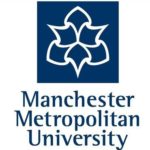
Summary
This project investigates the language and metaphors used to describe menstruation with a particular focus upon atypical bleeding (e.g., amenorrhea, endometriosis, fibroids, bleeding in pregnancy, post-partum haemorrhage and bleeding, flooding and spotting) through the life course (at puberty, in adulthood, in the peri-menopause and menopause). Textual material may be derived from either contemporary (21st Century) imaginative literature, film or life-writing and/or derived from interviews with volunteer participants in the UK, Ireland and, if the candidate has the requisite language skills, one or more non-English speaking language community. The project will produce a discourse analysis of recurrent themes, metaphors, similarities and differences in the language of menstruation today, paying close attention to the significance of class, education, culture, community, ethnicity, religion, disability and sexuality in mediating this discourse.
Aims and objectives
This project builds upon the work of the Critical Medical Humanities research group on critical disability studies, pain and the language of endometriosis.It aims to create interdisciplinary research pathways across literary studies, linguistics/discourse and intercultural studies.The candidate will be supervised by an interdisciplinary team with expertise in the mentioned areas and approaches upon which the project will draw.
Menstruation and atypical bleeding remain sources of social stigma for women, particularly at key moments of transition such as puberty and menopause. This project investigates the ways in which menstruation and, particularly, atypical bleeding are talked about by women today (both individually and in groups), and/or depicted in contemporary literature, film and life-writing. The project aims are as follows:
- to identify and collate narrative/conversational accounts of menstruation and atypical bleeding
- to produce a close critical/discourse analysis of the ways in which menstruation and atypical bleeding are depicted and spoken about in these accounts, paying close attention to the use of metaphor and recurrent tropes, conversational/narrative styles.
- to consider the role and significance of class, education, culture, community, ethnicity, religion, disability and sexuality in mediating ways of talking about menstruation.
- If the student is fluent in one or more language (alongside English), then the project also aims to compare and contrast, talk about menstruation in different language communities.
In exploring contemporary discourses about menstruation and atypical bleeding, the objectives of the project are as follows:
- To develop effective methodologies for eliciting, exploring and critically assessing the language(s) of menstruation
- To utilize the research as a means to break through taboos and embedded attitudes that can lead to marginalisation and social stigma
- To derive implications that will contribute to the enhancement of communication and the social visibility of the issues explored.
This project supervisory team will include Dr Lucy Burke
Specific requirements of the project
Applicants should have a high upper second or first class undergraduate degree in an Arts/Humanities discipline or equivalent and they should have or be completing Masters level study in any one of the following fields: literary, film or media studies; modern languages, discourse analysis/socio-linguistics; critical and cultural theory, philosophy, medical humanities, medical anthropology or sociology of culture. They require high level skills in either the stylistic/critical analysis of narrative fiction, literary genres, literary/ narrative discourse and/or the discourse analysis of conversational language/written text. Applicants interested in working with different language communities should be able to evidence fluency in their chosen languages.
Applicants must also demonstrate the ability to develop and conduct an independent research project. Experience of transdisciplinary research and/or work at the interface of the arts/humanities and science/medicine is desirable.
The successful candidate would be expected to start in September/October 2018.
Student eligibility
This opportunity is open to UK/EU and International applicants
Contacts
Informal enquiries can be made to: pgradmissions@mmu.ac.uk
Please quote the reference ArtsHum-CELL-2018-1
For more information, see the full advertisement here.
Deadline: 31st January 2018
Interviews: 12th Feb – 9th March 2018

